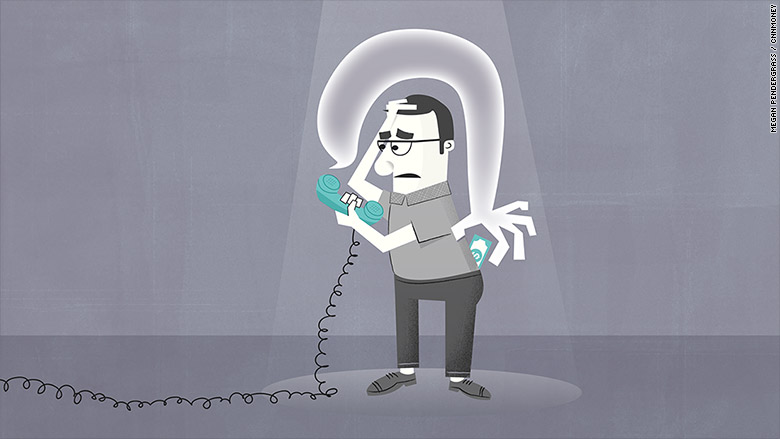
The zombie apocalypse might already be here.
Zombie or phantom debt collection scams are on the rise with fake collectors going after debts that don't exist: They've either been made up, paid off, discharged or forgiven. But victims are paying up out of fear.
Here's how it works: Scammers gather personal information about a person and then call and try to convince him or her a debt is owed. The scammer will start rattling off information like the person's Social Security number, bank account number, address, date of birth and other tidbits to try and break down confidence and insert doubt.
"You start to think: 'Maybe I do owe this debt since they have all this information on me,'" said Chris Koegel, assistant director of the Division of Financial Practices at the Federal Trade Commission.
Then comes the intimidation. "They inject this urgency; threaten arrest, wage garnishment, litigation and lawsuits." The thieves will call repeatedly and eventually, out of fear, consumers agree to pay the money to end the harassment.
These scams have been around for several years, but are becoming more prevalent. Since 2012, the FTC has filed eight cases against 61 defendants over phantom debt collection allegations.
Related: The secret world of government debt collection
Scammers tend to prey on low-income individuals, according to Koegel, who added that the agency has seen a connection with fake collectors targeting people who have used or applied for payday loans.
"Financially distressed consumers are more vulnerable and are even more easy to convince with this scam."
Scammers aren't after large sums of money -- usually just a couple hundred dollars.
If you think you are being scammed, Koegel recommended asking for the company's name, address and phone number to verify it's legitimate.
"If the debt collector is off the bat threatening with arrest or litigation, he is obviously trying a high-pressure sales tactic on you ... it's a reason to be suspicious."
Related: Feds crack down on illegal debt collectors
Debt collection is one of the most complained about industries in the country, but it continues to expand as more Americans fall into debt. According to the government, almost 30 million consumers have an account in collections.
Even if you do owe money, that doesn't give debt collectors carte blanche with their tactics.
Here's what every consumer should know about what debt collectors can and can't do:
They can't call whenever they want. Collectors aren't allowed to call debtors before 8:00 am or after 9:00 pm unless given permission, according to the FTC. They also can't call a person's place of work if they are told not to.
They can't pretend to be someone else. Debt collectors have to disclose who they are and send written details on who and how much money is owed. They must also inform consumers how to verify or dispute a debt.
They can't call once they're told not to. Collectors can call, text, email or write about a debt, but once a consumer has sent a letter to the company saying not to make contact, they have to stop.
Koegel suggested making a copy of the letter and sending it certified mail with a return receipt to prove it was sent.
They can't blab about debts. While collectors can call friends, family and neighbors to get a borrower's contact information, Koegel stressed they can't mention the debt.
They can't immediately take your wages. Unscrupulous scammers will often make big threats to scare people, like taking the money out of your paycheck.
Collectors can eventually garnish wages, but they would have to sue the borrower, win a judgment and get another order allowing the action.
